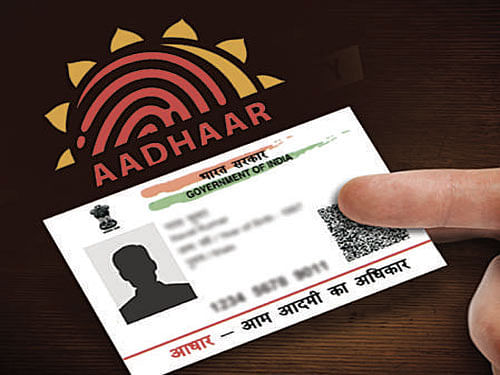
The racket of linking fictitious ‘Aadhaar’ numbers to generate bogus Below Poverty Line (BPL) ration cards has come as a shock to the state government.
Recently, the Food and Civil Supplies department had proudly announced having achieved about 98% seeding of all BPL cards with the Aadhaar number. Doubts are now being raised on the accuracy of the Aadhaar-seeded ration card data. Currently, the state has 1.05 crore BPL cards.
The state had about 1.09 crore ration cards before the exercise to link the Aadhaar numbers was taken up. Ration supplied through a BPL card carries a subsidy of Rs 800 per month on an average.
The modus operandi of the racket is simple: Invalid and fake 12-digit numbers are linked with bogus ration cards. In some cases the Aadhaar numbers of unknown persons are linked with bogus cards to make them appear as genuine Aadhaar-seeded ration cards. The Food Inspectors, who are supposed to verify authenticity of Aadhaar-seeded ration cards data, have turned a blind eye in all these cases, sources in the Food and Civil Supplies department said.
The racket came to light recently after a team of officials led by department Secretary Harsh Gupta raided some fair price shops in Bengaluru. For instance, a shop at Aruna Veerapura in Bengaluru North taluk had 708 bogus ration cards.
Surprisingly, all the 708 cards were seeded with the same Aadhaar number.
And, the Aadhaar number was of a certain Yeshpal who had obtained the franchise to distribute ration coupons to beneficiaries. Yeshpal is a relative of the fair price shop owner.
In Bengaluru alone, more than 45,000 bogus cards covering about 300 fair price shops have been found so far. Similar cases have surfaced in Mysuru, Hubbali-Dharwad, Tumakuru and other cities and towns.
A team of department officials, including the Secretary, have been working overtime verifying the data and digging out bogus ration cards. The team was working even on Wednesday despite it being a government holiday, Gupta said.
The random verification is being done only with regard to 31 lakh BPL cards existing in the limits of urban local bodies, including Bengaluru. The department has introduced the coupon system in these areas. A beneficiary has to produce ration coupon to the fair price shop owner to get the ration. The coupons can be collected either from the franchise or Bengaluru One centre.
Gupta said the department has drawn up a detailed plan to identify bogus ration cards. Directions have been issued to officials to slap criminal cases against all those found to be involved in this illegal act. Cases will be filed under the relevant sections of the Indian Penal Code, the Essential Commodities Act and also the stringent Goonda Act, he added.